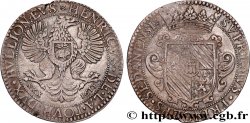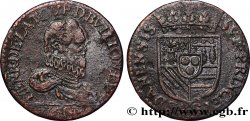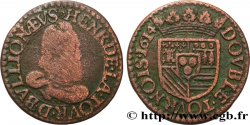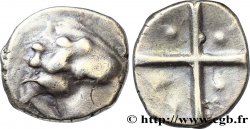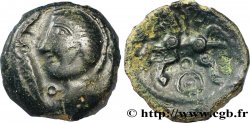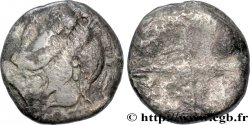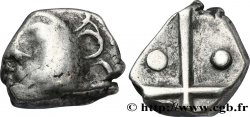Лицевая сторона
Аверс: легенда: HENR. DE. LA. TOVR. D. BVLLIONII.
Аверс: описание: Buste drapé et cuirassé de Henri de La Tour avec col fraisé à droite. À l'exergue : +1614+.
Аверс: перевод: (Henri de la Tour, duc de Bouillon).
Обратная сторона
Реверс: легенда: SVP. PRINCEPS. SEDANI. ET. RAVC.
Реверс: Описание: Écu couronné écartelé au 1 de la Tour, au 2 d'Auvergne, au 3 de Turenne et au 4 de Bouillon, sur le tout un petit écu de Boulogne.
Реверс: перевод: (Prince souverain de Sedan et de Raucourt).
Историческая справка
ARDENNES - PRINCIPALITY OF SEDAN - HENRI DE LA TOUR D'AUVERGNE
(1594-1623)
Henri de La Tour d'Auvergne (1555-1623) is the son of François III de La Tour, killed at the battle of Saint-Quentin, and a descendant of the house of Montmorency. He is sent to the Court at the age of ten and is attached to François d'Alençon. He was at the siege of La Rochelle in 1573 but converted to Calvinism around 1576 and became lieutenant general of Haut-Languedoc. In 1581, after having accompanied François d'Alençon, Duke of Anjou to the Netherlands, he became first gentleman of Henri de Navarre and distinguished himself by seeking reinforcements against the League in 1590. With the support of Henri IV, he married Charlotte de la Marck in 1591, sole heiress of Bouillon and the principality of Sedan.. Marshal of France in 1592, he is very close to Henri IV after his abjuration which allows him to inherit from his wife in 1594. He then married Elisabeth de Nassau, the daughter of Guillaume le Taciturne, with whom he had eight children, six girls and two boys, Frédéric-Maurice de La Tour, Prince of Sedan, and the great Turenne.. He served in the military campaigns until the pacification of 1597-1598. Ally of the Great, dissatisfied, he is involved in the conspiracy of Biron and his lands are confiscated from him. He begged for forgiveness in 1606 and regained his possessions. After the death of Henri IV, he intrigued against Sully then allied himself with the princes revolted against the regent but refused the post of generalissimo of the Calvinists during the assembly of La Rochelle in 1621. He died in 1623 leaving the image of a turbulent and unfaithful prince towards Henri IV to whom he nevertheless owed his career and fortune..








 Cообщить об ошибке
Cообщить об ошибке Распечатать страницу
Распечатать страницу Отправить мой выбор
Отправить мой выбор Задать вопрос
Задать вопрос Consign / sell
Consign / sell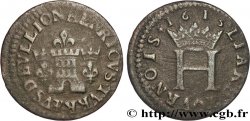
 Информация
Информация